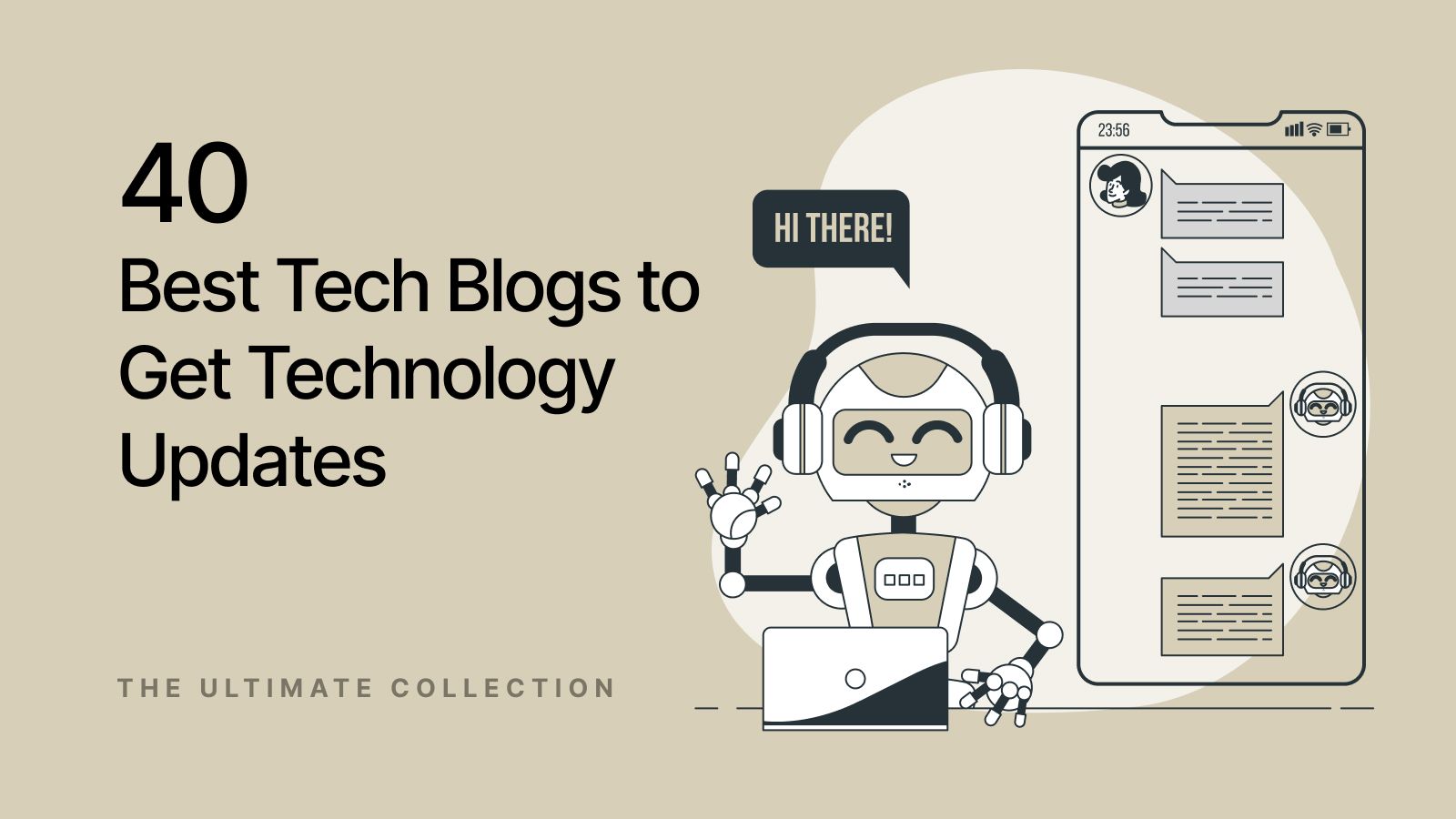Boost Your Understanding with the Best tech blog Featuring Industry Specialists
Boost Your Understanding with the Best tech blog Featuring Industry Specialists
Blog Article
Exactly How Blockchain Technology Is Revolutionizing Data Safety
Blockchain modern technology is essentially modifying the landscape of data security by presenting a decentralized structure that assures improved openness and durability. Unlike typical systems, which rely on centralized information repositories, blockchain distributes data throughout a network, lessening susceptabilities and solitary points of failing. The use of advanced cryptographic methods ensures that data stays tamper-proof, cultivating depend on among stakeholders and customers.
The Basics of Blockchain
Blockchain innovation, a cutting edge idea in digital information administration, basically changes exactly how info is kept and secured. At its core, a blockchain is a distributed journal that records transactions across a network of computers, making certain transparency and immutability.
Secret to comprehending blockchain is the hashing procedure, which encrypts transaction data right into a special alphanumeric code. This cryptographic function makes sure that any kind of alteration in the purchase data leads to a totally various hash, thus securing against tampering. The consensus device, one more critical component, verifies and verifies brand-new transactions through a network of nodes, thus removing the demand for a central authority.
Additionally, blockchain's append-only framework makes certain that information, once added, can not be erased or changed. This particular guarantees a irreversible and proven document of transactions, cultivating trust amongst individuals. Therefore, blockchain gives a robust structure for data honesty, providing industries a dependable method for tracking and handling digital information in a safe, transparent manner.
Decentralization and Security
Decentralization, a core concept of blockchain innovation, substantially enhances data protection by distributing control across a network instead than relying on a particular, centralized entity. This distribution alleviates the threat of solitary points of failing, which prevail in typical central systems. By spreading information across many nodes, blockchain ensures that even if one node is jeopardized, the entire network remains secure. This redundancy not only strengthens the stability of the data yet also boosts its resilience to cyberattacks and system failings.

Furthermore, decentralization encourages users with better control over their information. Each individual in the network has accessibility to the entire blockchain, permitting them to verify and examine purchases independently. This transparency fosters trust among users, as they do not have to depend on a central authority to make certain information honesty. Generally, decentralization is crucial in improving information safety in blockchain networks.

Cryptographic Strategies
At the heart of blockchain modern technology, cryptographic strategies play a critical function in protecting information, making certain both privacy and integrity. These methods are fundamental to the blockchain's capacity to firmly videotape deals in a decentralized manner. Cryptography in blockchain employs a combination of symmetric and uneven algorithms to encrypt data, making it easily accessible just to accredited parties - Best tech blog. Public and private key sets are main to this procedure, allowing for safe authentication and identification verification without disclosing delicate details.
Hash functions are one more essential part, changing input information right into a fixed-size string of characters, properly developing an one-of-a-kind electronic finger print for every block. This guarantees that any kind of attempt to modify the data will result in a completely various hash, therefore preserving the immutability of the blockchain. Additionally, digital signatures verify the credibility and honesty of purchases, providing a layer of non-repudiation.
The decentralized nature of blockchain, incorporated with robust cryptographic strategies, eliminates the requirement for middlemans, lowering potential susceptabilities. As blockchain innovation develops, advancements in cryptography such as zero-knowledge evidence and homomorphic file encryption remain to boost safety steps, even more fortifying information security in this advanced electronic ledger system.
Use Situations Throughout Industries

In the medical care he said market, blockchain makes certain the protected storage space and sharing of individual records, advertising interoperability while securing delicate information from unapproved gain access to. This modern technology empowers patients with control over their case history and helps with smooth coordination among doctor.
Supply chain management benefits considerably from blockchain's unalterable journal, which makes sure traceability and credibility of products from beginning to customer. By improving transparency, blockchain helps reduce concerns such as counterfeiting and unethical sourcing.
Furthermore, blockchain's decentralized nature is reshaping the power field by enabling peer-to-peer energy trading, where customers can deal excess renewable resource straight. This promotes an extra lasting and efficient power community.
In the realm of copyright, blockchain offers a tamper-proof system for creators to register and protect their works, making sure rightful attribution and fair compensation. These varied use cases underline blockchain's role as a critical pressure in redefining data safety throughout sectors.
Future of Data Security
As we want to the future of data protection, blockchain technology is poised to play a critical function in safeguarding electronic info. With its decentralized and unalterable attributes, blockchain supplies a durable framework for safeguarding delicate information versus unapproved accessibility and cyber risks. This innovation ensures that as soon as data is tape-recorded, it is almost impossible to modify without discovery, therefore offering a considerable advantage over conventional information storage techniques.
The assimilation of blockchain with other sophisticated innovations, such as synthetic knowledge and the Net of Things (IoT), is anticipated to enhance information protection strategies even more. By leveraging smart contracts, companies can enforce and automate protection procedures, lowering human error and enhancing efficiency. In addition, blockchain's capacity to supply traceable and clear transactions will certainly reinforce trust fund and liability in information management methods.
As governing landscapes evolve, blockchain's compliance-friendly nature will come to be increasingly pertinent. It can aid companies satisfy strict data security guidelines, such as the General Data Defense Law (GDPR) and the California Customer Privacy Act (CCPA), by supplying verifiable documents of information processing tasks. Eventually, blockchain's unique features setting it as a transformative tool in the ongoing mission to protect the electronic globe against ever-evolving cyber risks.
Conclusion
Blockchain modern technology stands for a standard change in information security by leveraging decentralization and cryptographic techniques to improve openness, trust, and data integrity. Its ability to get rid of single points of failure and use consensus devices considerably reduces the risk of fraud and cyberattacks. This ingenious structure not just equips users with higher control over their data however likewise straightens with regulatory conformity. As cyber risks develop, blockchain emerges as an essential tool for robust information security throughout various industries.
Blockchain innovation is fundamentally modifying the landscape of data safety and security by presenting a decentralized structure that assures improved transparency and resilience. Unlike typical systems, which rely on central data databases, blockchain distributes information across a network, decreasing susceptabilities and single points of failure.Decentralization, a core concept of learn this here now blockchain technology, dramatically improves data security Continued by dispersing control throughout a network instead than counting on a single, centralized entity.At the heart of blockchain technology, cryptographic methods play a crucial duty in safeguarding information, ensuring both discretion and stability.Blockchain technology stands for a standard shift in information security by leveraging decentralization and cryptographic techniques to improve transparency, depend on, and information honesty.
Report this page